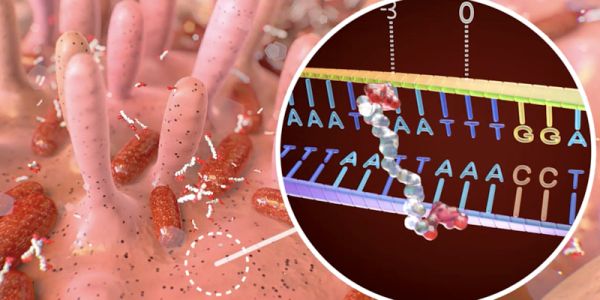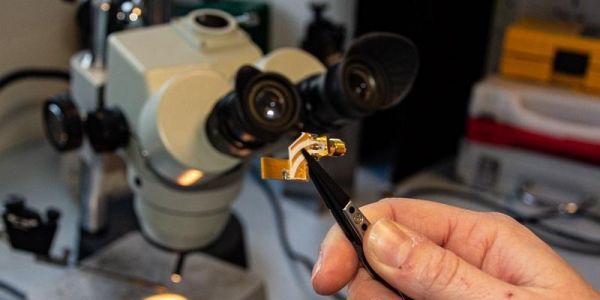
Tickling an atom to investigate the behaviour of materials
Scientists working at the frontier of nanotechnology face huge challenges.

Scientists working at the frontier of nanotechnology face huge challenges.

A common type of bacteria found in our guts could contribute to bowel cancer, according to new research.

Extinction risk could decrease by more than 50% if at least 30% of land were to be conserved across the tropics, a new study reveals.

Cameras shooting up to 25,000 frames a second have been used to capture the moment two droplets of liquid come together, opening up research into new applications for 3D printing.

The University is to be part of two supercomputing centres - to boost the ability of researchers to make major scientific breaththroughs.

Scientists have secured funding to investigate ways the UK steel industry can be decarbonised within 30 years.

Scientists and engineers have created the first electrically-driven ‘topological’ laser, which has the ability to route light particles around corners.

Researchers have made a breakthrough in the control of terahertz quantum cascade lasers, which could lead to the transmission of data at the rate of 100 gigabits per second.

A project researching the latest autonomous vehicle technologies has successfully completed a 230-mile self-navigated journey on UK roads.

As National Apprenticeship Week 2020 kicks off, the University of Leeds is celebrating the success of its partnerships and those studying on its programmes.